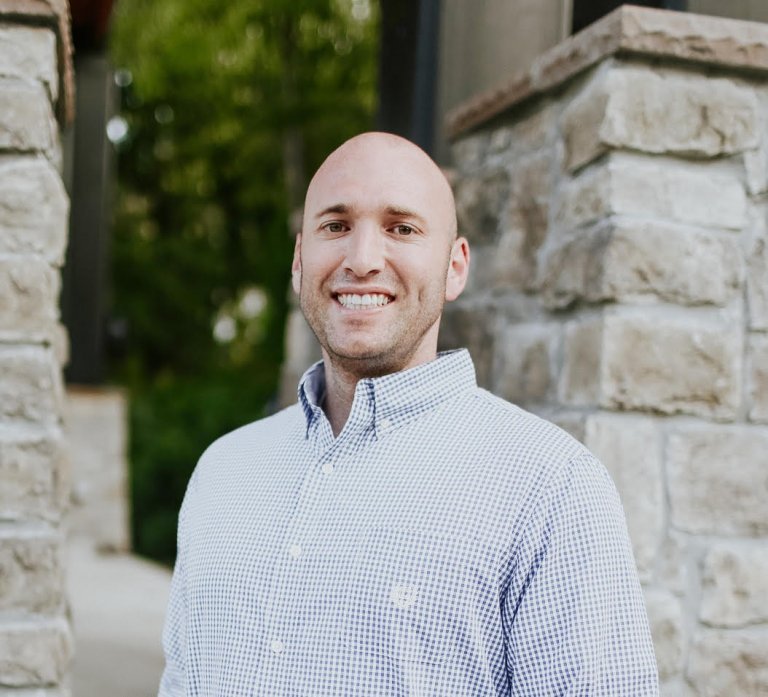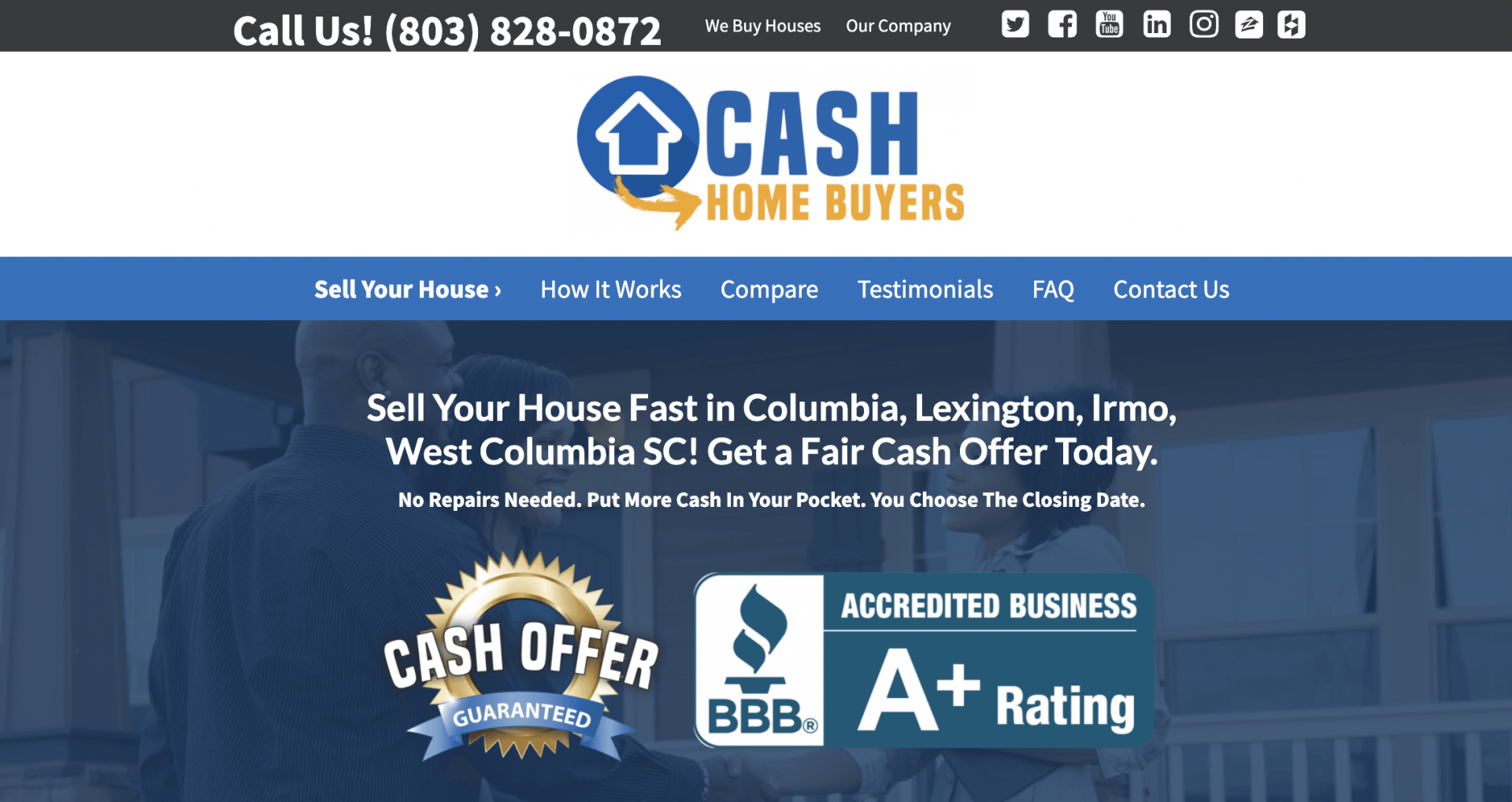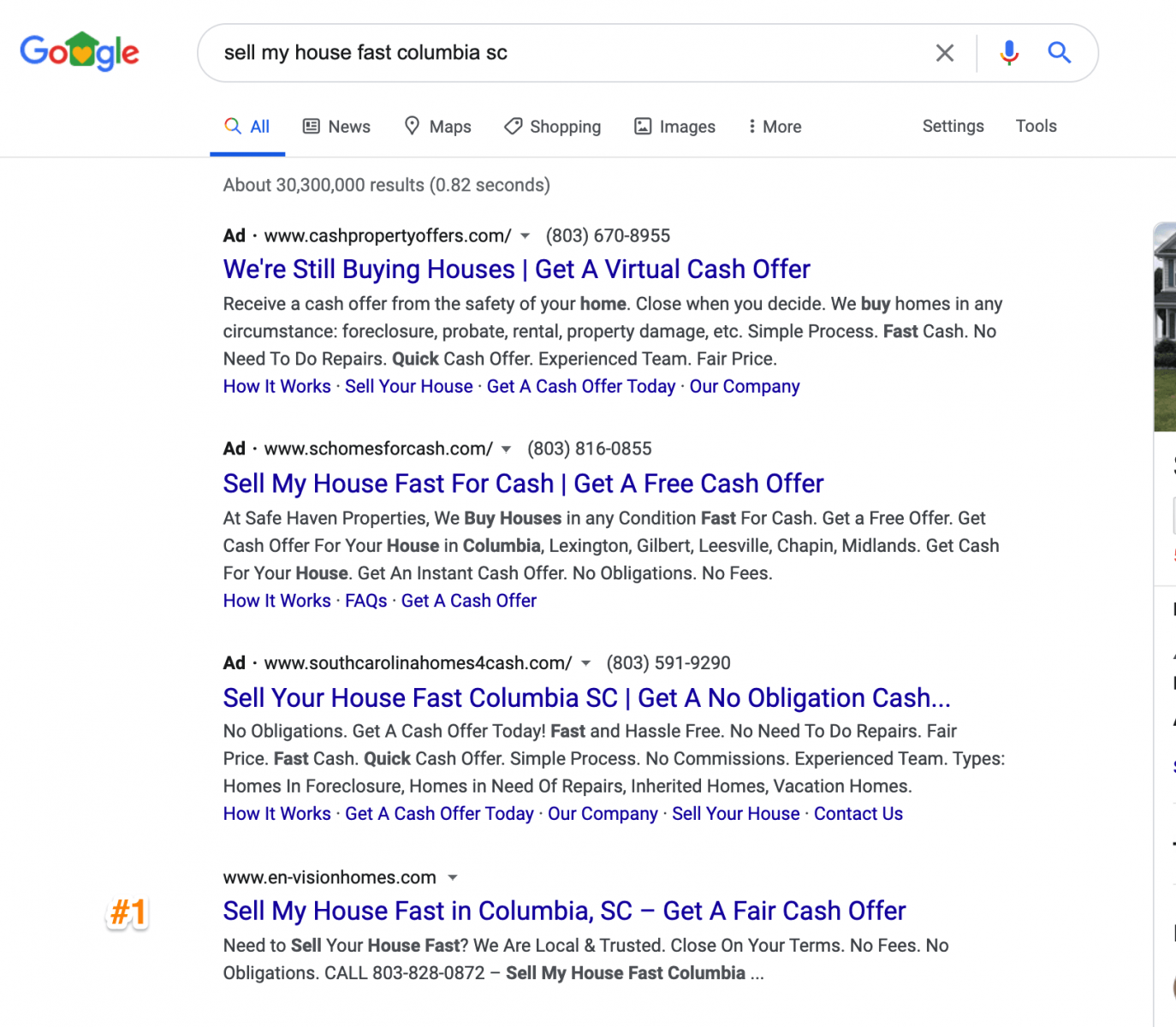How do you build a thriving real estate investing business? That’s the question we consistently try to answer here at Carrot.

Ben Lovro, Founder of EN-VISION HOME SOLUTIONS, and Carrot member from South Carolina hopped on and walked us through how he consistently does 4-6 deals per month.
Ben has been a Carrot customer for a few years now, and he is someone we’ve have wanted to have on our podcast for a long time.
His story and transformation are nothing short of incredible. It’s not just a story of becoming a real estate investor or building a business. Ben’s story is about perseverance and overcoming the obstacles that life throw can throw our way.
We’re excited to share with you his story (from five years in prison to five deals per month), his processes, and his tricks for maintaining a positive mindset.
Here are the main ways he’s been able to build his success.
Watch the full success story…
11 Simple High-Impact Lessons to Become a Successful Real Estate Investor
1. “You Can’t Microwave Success”
During the interview, Trevor asks Ben…
“Do you ever just want to quit?”
Ben sort of laughs to himself and says…
“More times than I can even tell you about.”
And he goes on to say something really powerful…
“You can’t microwave success.”
That is, there’s no shortcut for building a successful real estate wholesaling business.
You’ve got to show up, do the work, and show up again tomorrow.
This stuff often takes longer than you want. But if you’re faithful to proven strategies and processes, then you will succeed… it’s only a matter of time.
But remember, there’s no way to cut corners.
If you’re in the midst of a grind, just know that you are making progress and that that progress will pay off sometime in the future. It might just feel like cold, hard work right now… but this season won’t last forever.
Stay the course… and you’ll reap rewards down the road.
2. Begin With The End In Mind
Why do you want to build a real estate business?
Many new real estate investors or agents are in it for the money… or the sense of freedom that they can acquire.
And that’s great but it’s probably not clear enough.
If you’re going to succeed in the long-term, then you’ve got to know why you’re doing what you’re doing.
Because here’s the thing: it’s going to be tough sometimes. And if you don’t have a really compelling reason for building your business, then you’re probably going to quit.
So why are you doing it?
- Do you want to make a positive impact on the people around you?
- Do you want to lead others?
- Do you want to provide for your family?
- Do you want to have more freedom for the things that really matter in life?
This is a lesson that Ben originally learned from reading The 7 Habits Of Highly Effective People and it’s stuck with him.
Whatever your ultimate goal is, write it down and remind yourself why you’re doing what you’re doing every single day.
3. Read Like Crazy
It’s no secret that consistently reading non-fiction books can make a big impact on your mindset and by association, on your business.
(Because YOU are leading your business…)
So here’s a question for you: are you reading consistently?
Ideally, you should read at least a little bit every day.
You should read books that challenge your mindset, books that make you think about business differently, and books that teach you practical strategies for being successful.
The more you read, the more successful you will probably be — in fact, it’s kind of hard to not become successful if you read like crazy.
So in some ways, this is a shortcut to becoming the person that you want to be and building the business of your entrepreneurial dreams.
Read, read, read.
Two books that Ben mentions are The 7 Habits Of Highly Effective People and Rich Dad Poor Dad. If you don’t know where to start… maybe start with one of those.
4. Use A Winning Website
It might seem a little silly… but the website you’re using can have a big impact on whether or not your business is successful.
Or at least, how successful your business is.
Ben started with a basic website provider but received sub-par results.
It wasn’t until he switched to Carrot, that he started seeing massive results.
He started generating more leads.
He started closing more deals.
And after 6 months of consistently working on his SEO, he ranked position number 1 for his target keyword phrase in Google.
Now, he attributes a ton of his success to his Carrot website and to his SEO efforts.

If your website is built to win… your business will win as well.
You can sign up to get a winning website risk-free for 30 days over here.
Who knows? Maybe that’ll be a game-changer for your business as well!
5. Delegate As Early As You Can
Many entrepreneurs are nervous to start delegating, to start hiring, and to start trusting other people to manage parts of their business.
That’s understandable, of course.
Your business is your livelihood… and the last thing you want is for someone else to mess up what you’ve got going.
But here’s the thing: not delegating is always one of the best ways to hamper or slow your own success.
By trying to continue as a one-man show, you limit how large your business can grow and you put yourself at a much higher risk for burnout.
You know all of those things that have to be done but that you hate doing?
They’re different for everyone — maybe you hate cold calling, maybe you hate acquisitions, or maybe you hate sending direct mail. Whatever the case, those things that you hate doing are going to burn you out if you don’t delegate them soon.
You should focus on your strengths, not your weaknesses.
And the good news is that you can actually start delegating pretty early in the life of your business.
Ben started by hiring someone to help him with cold calling so he could focus on growing his business. He went to UpWork and hired someone who’s now been with him for several years.
When it comes to hiring people on UpWork (which is an awesome platform), Ben offers some advice…
- Try to weed out 90% of people — Most of the people who apply for your job aren’t going to be very committed. Try to weed out people by asking them to do very specific tasks during the interview process and then watch to see who does what you asked. Eventually, you’ll have just a few promising applicants to choose from.
- Ask people why they’d be a good fit for your business — Ben encourages you to ask applicants why they think they’d be a good fit for your business. Do they have past experience? Are they consistent? Are they loyal? These are the kinds of things you’re trying to find out.
As time goes on, you’ll be able to hire more and more people by reinvesting your profits into your business.
Ben has two cold-calling people and an Acquisitions Manager, now.
The sooner you start delegating, the faster your business is going to grow.
Related Content: Guide To Cold Calling Motivated Sellers (+Free Scripts!)
6. Don’t Put Everything Into Your First Deal
Starting to build a real estate investing business can be tough… especially when you’re trying to land your first deal.
It’s not uncommon for a person’s first deal to go a bit askew.
Maybe they don’t make as much money as they thought they would, maybe they can’t find a buyer, or maybe the deal falls through.
It’s important to mentally prepare for those possibilities because if they happen (and they very well might), you need to keep going.
Remember: one failure does not equal future failures.
In fact, those failures are usually an important part of the learning process.
So embrace them, prepare for them, and do not sink everything you have into your first deal.
7. Use Our 3-Lead-Per-Day Training
What if you were getting 3 leads through your website every single day… without running paid traffic?
That would be pretty awesome, yeah?
Well we created our 3 Lead Per Day Training to help you do just that — and it uses a little thing we call SEO.
Basically, SEO stands for Search Engine Optimization and it is tactics and strategies for getting your website to rank in Google so that when someone types in “Sell my house fast in [YOUR CITY]” or something similar, they go to your website and give you a call.
From what we’ve seen, this is the most game-changing marketing strategy for real estate investors and agents.
Many of our members get 5-10 leads per day just through SEO!
And in this training, we show you how to do that!
This training is so simple that you can just hand it to a Virtual Assistant that you hired on UpWork, ask them to go through it and follow it step-by-step… and they’ll know how to optimize your website to rank.
In fact, that’s exactly what Ben did with his VA.
He went through this training himself. Then he handed it to his VA and he never had to worry about SEO again… but he’s getting inbound leads like crazy.
Which brings me to the next lesson.
Here’s why you should try to lean toward inbound marketing.
Related Content: The Beginners Guide to SEO for Real Estate Strategies, Tips, And Examples
8. Lean Toward Inbound Marketing Leads
Paid advertising can me a major part of your business’ success.
Within a few days, you can run Facebook ads, send direct mail, or use PPC to generate leads.
And while some of those leads might be tire-kickers, they are still leads. Ben’s close rate, for example, on leads from paid advertisements hovered around 1 in 60, which isn’t unheard of depending on the strategy.
Most real estate investors, though, explain that inbound marketing leads are much higher quality. Some report getting a 1-in-10 or 1-in-15 close rate.
But what is inbound marketing?
Well, let’s first talk about outbound marketing.
Outbound marketing is paid ads. You go pay to interrupt people’s online experiences… and some of those people are, by happenstance, interested in what you’re offering and they click on your ad.
But because those people aren’t looking for you when they find you, the quality of those leads is relatively low.
Inbound marketing, on the other hand, what we specialize in here at Carrot.
Inbound marketing for real estate is a strategy that focuses on attracting leads from your content. Basically it’s when a lead comes looking for you rather than vying for their attention.
The most common way this happens is that someone types into Google something like “Sell my house fast in [MARKET CITY]” and they stumble across your website… then they give you a call.
Because those people came looking for you, they are more motivated and they are far more likely to turn into a closed deal.
However, SEO takes a long time to get going.
It took Ben 6 months until he got to position number one in Google for many search terms and two for many other — but once he did, it was well worth the wait.

That’s why we recommend investing in paid ads to keep your business moving, but investing in SEO over the long-term so your lead-flow will be more predictable and sustainable.
Outbound marketing can support your business now but inbound marketing can support your business for years to come.
9. Understand The Difference Between Different Temperature Leads
Not all leads are created equal.
Some leads… you don’t even have to negotiate. They tell you how much you want, you pay them that amount, and you’ve got a closed deal.
Some leads want to negotiate with you for a while. They want a price that you can’t afford, but you follow-up with them hoping that they’ll change their mind.
And some leads just aren’t super motivated. Sure they are sort of interested in your service… but they aren’t even close to ready to make a commitment.
It’s very important to understand the difference (and value) of each of these kind of leads.
Hot leads, warm leads, and cold leads.
Because once you understand that your business is generating different kinds of leads, you can serve each lead appropriately and make the most of each.
Hot leads… answer their call, close quick, and make the process as painless as possible.
Warm leads… negotiate with them, listen to their concerns, help them however you can, and DEFINITELY follow-up consistently.
Cold leads… stay in touch with them but don’t invest too much time chatting with them. You should keep them on your emailing or calling list and follow up every other month or so.
The point is… treat every lead how they want to be treated and your business will grow faster.
10. Create a Morning Routine to Control Your Day
Ben also understands the importance of having a morning routine.
As entrepreneurs, it’s easy to get lost in the busy-ness of the day the moment you wake up. Maybe you try to rush out the door to get to important tasks as soon as possible.
That makes sense… you’re busy.
But you can’t neglect your morning routine.
According to Ben, you’ve got to take immediate control of your day by meditating, reading, and even watching an inspiring YouTube video every morning.
This will set you up to conquer the day and do your best work.
And what’s the point of putting a ton of work into your business if it’s not going to be your best work?
So start your day off right and take even just 15 minutes to take care of yourself and get inspired.
Related Content: Download the Daily Habit Tracker
11. Let Impact Drive You
Why are you building your business?
You probably want to create more freedom for you and your family.
You probably want to make lots of money.
But do you also want to impact others?
Trevor and Ben talk about how money becomes boring after a while and will only drive you so far in your business, but making an impact will always drive you. That is, wanting to help others and leave your legacy on the world.
It might seem silly, but one of the best ways to grow your business is by caring for others and doing your best to leave a positive impact on your clients.
Related Content: Carrot’s commitment to making an IMPACT
Now Get Busy
Kathryn Orford said…
“Sometimes our biggest nightmare turns out to be our biggest gift. And it all comes down to our attitude. Life will throw us curve balls and disappointments, even heartbreak. But ultimately we can choose if we’re going to be bitter or better for the experience.”
Ben not only has chosen a better experience, but he has also crushed it! Now it’s time for you to lace up your boots and get to work. Get organized. Get a strategy. Get healthy.
We’ll leave you with some questions…
Why are you proud of the business that you’re building or have built?
What have you learned along the way?
Let us know in the comments and let us know how this interview benefited you! :)

Great interview. The biggest take away I have is that I need to spend time “Building my Business” and not “Working my Business”, which I’ve been doing for years. I need to take major steps and Delegate every Role I can, so I can have a Business and not a Job that runs me back & forth with no light in sight!